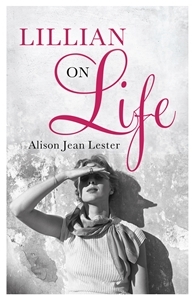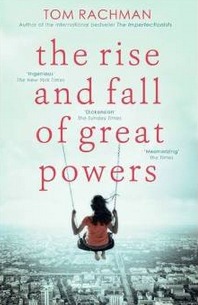
In her late 50s, Lillian refuses to be held back by the embarrassments of her ageing body; all she needs is a pot of KY Jelly strategically placed at the bedside and she can continue to welcome her married lover into her home. She might have been a late starter sexually, but she soon caught up, learning how to adapt herself to a man’s desires, “pretending not to notice … [being] the key to so much” (p142). Even as she acknowledges her disappointments, she has no room for self-pity (p152):
Even as she relates how she spent a fortune crying to her therapist, she can’t do so without humour:
Alma smoked while I talked and cried. It’s a shame shrinks can’t smoke in their own offices anymore. The smoke looked like her thoughts. Shrinks who just listen make me nervous
(evoking a smile of recognition in me as I recalled the psychoanalytic papers I studied in which the client’s response to the therapist’s smoking becomes embedded in the analysis).
Lillian on Life is a deceptively light novel composed of a series of short chapters, headed with aphorisms (which turned out not to be irritating in the way I feared they might), about the lifelong process of leaving home (p48):
When we’re young we’re unfit to judge whether our parents know what they’re talking about. Sometimes we want them to be right, sometimes we want them to be dead wrong, but we can’t tell which they are actually being. If we could figure out which instinct guided them, the terrain would be much easier to navigate. I couldn’t tell if Mother was speaking from the instinct to protect me, or the instinct to protect herself. It was gruesome.
What starts as a book about a woman living the high life becomes, like Academy Street, about fortitude in the face of continued abandonment. In a surprising way – or perhaps not, given that I’m finding parallels in the most unlikely places at the moment – Lillian reminds me of Diana in my own novel, Sugar and Snails. Although that might be down to her companionable cat and her use of KY Jelly!
Thank you, John Murray books, for my review copy.

The novel zigzags back and forth across time and continents to gradually reveal the circumstances of her upbringing, and the terrible betrayal that underpins it all. The twenty-odd years of her travels encompass the rise and rise of the Internet (with amusing cameos of thinly-disguised dot-com start-ups everyone expects to come to nothing) while the characters discuss the historic and contemporary falls of national powers from Rwanda to Greece. Every minor character has a more embellished biography (whether true or not) than Tooly is given, at least until her story unfolds, which is partly the point: all her life she’s had to mould herself into the shape that others have defined for her, never checking to see whether it’s the right fit. The Great Powers of the title are, to my reading, the parental figures on whose capriciousness the girl so desperately depends.
We all need to leave our parents behind to forge our own independent identity but for those of us, like Tooly, with a background of insecure attachment it’s a particularly arduous route. And that was my problem with Tooly; lovely as she is as a character, no matter how endearingly quirky, she isn’t as disturbed by her chaotic upbringing as I’d expect her to be. The plaudits from the reviews of the hardback publication suggest that other readers were able to accept the humour in the situation without fretting as much as I did about the damage wrought by adults who put their own selfish desires above the responsibilities of caring for a child.
Thanks to Sceptre books for my review copy.





















 RSS Feed
RSS Feed





















